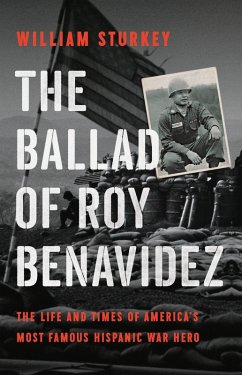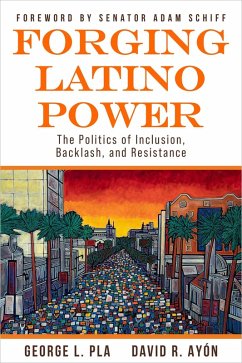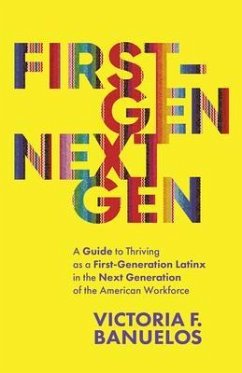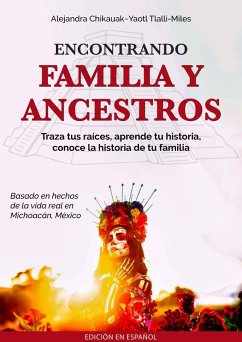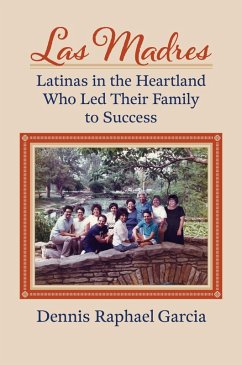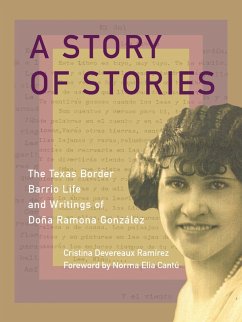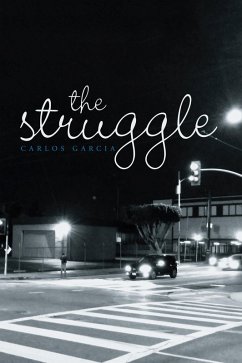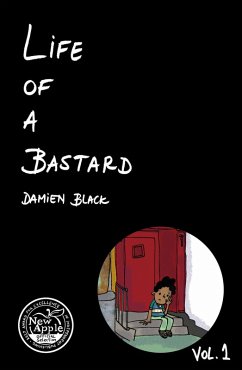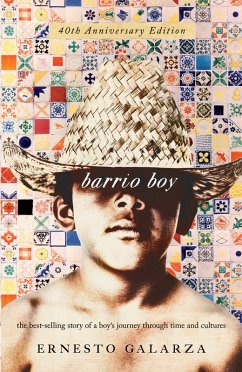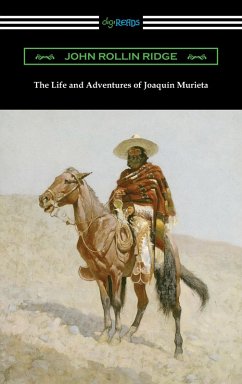
The Life and Adventures of Joaquin Murieta, the Celebrated California Bandit (eBook, ePUB)

PAYBACK Punkte
2 °P sammeln!
"The first national bestseller ever to be written by a San Franciscan." -San Francisco Examiner, Sept. 15, 1981"We think it is doubtful that Joaquin can be taken...they have got a stronghold in the chapparal, whence they can commit great destruction." - NY Times, March 29, 1853"Captain Harry Love met with the notorious murderer and robber Joaquin, and six of his equally infamous band, at Panocha Pass... a desperate running fight." - The Brooklyn Daily Eagle, Aug. 24, 1853"Capt. Harry Love arrived in town yesterday...bringing with him the trunkless head of the bandit chief Joaquin." - The Place...
"The first national bestseller ever to be written by a San Franciscan." -San Francisco Examiner, Sept. 15, 1981
"We think it is doubtful that Joaquin can be taken...they have got a stronghold in the chapparal, whence they can commit great destruction." - NY Times, March 29, 1853
"Captain Harry Love met with the notorious murderer and robber Joaquin, and six of his equally infamous band, at Panocha Pass... a desperate running fight." - The Brooklyn Daily Eagle, Aug. 24, 1853
"Capt. Harry Love arrived in town yesterday...bringing with him the trunkless head of the bandit chief Joaquin." - The Placer Herald (Rocklin, California), Aug. 13, 1853
A young, innocent and industrious man who is hampered in his attempts to be successful in the United States by acts of cruelty and injustice becomes a bandit who attracts a large number of associates and terrifies the state of California for several months and nearly puts in action a plot for a Mexican invasion of California.
Such is the story told by Gold Rush era Cherokee author John Rollin Ridge in his 1854 book "The Life and Adventures of Joaquin Murieta, the Celebrated California Bandit."
Regarding the authenticity of his book, Ridge writes: "I have taken very extraordinary pains in collecting and sifting the facts and the reader may rely upon the account given in these chapters as absolutely correct in every particular." Famous American historian Herbert Howe Bancroft apparently believed in the authenticity of Ridge's accounts and would use Ridge's book as a primary source in his history of California.
In his book, Ridge---himself a California Gold Rush miner---traces the harrowing life of Joaquin Murrieta (1829 -1853), the Robin Hood of El Dorado, who was a Sonoran forty-niner, vaquero and gold miner who became a famous outlaw in California during the California Gold Rush of the 1850s.
The life story details Murrieta's evolution from a young Mexican migrant into a legendary outlaw and insurrectionist. Murieta as a young man arrives in California "fired with enthusiastic admiration of the American character." However, upon obtaining success in the gold fields of California, his American dream collapses when white men jump his claim, assault his wife, requisition his farm, kill his brother, and falsely accuse and publicly whip him.
After making attempts to live an honest life as American, in the face of anti-Mexican discrimination, Murieta becomes outlaw and eventually an insurrectionist who plotted and nearly set into motion a plan to take over California with forces from Mexico.
Due to the actions of Murieta's gang, in many agricultural districts both mining and agricultural pursuits were in a measure suspended. Travel became absolutely dangerous in the most open highways, and communication had well-nigh ceased between important points. American owners of ranches were impoverished in a night by having every hoof of their stock driven into the mountains, and afterward into Sonora. Thus was the scene set in Ridge's final chapter for a grand finale showdown between the outlaw gang and the newly minted California Rangers.
"We think it is doubtful that Joaquin can be taken...they have got a stronghold in the chapparal, whence they can commit great destruction." - NY Times, March 29, 1853
"Captain Harry Love met with the notorious murderer and robber Joaquin, and six of his equally infamous band, at Panocha Pass... a desperate running fight." - The Brooklyn Daily Eagle, Aug. 24, 1853
"Capt. Harry Love arrived in town yesterday...bringing with him the trunkless head of the bandit chief Joaquin." - The Placer Herald (Rocklin, California), Aug. 13, 1853
A young, innocent and industrious man who is hampered in his attempts to be successful in the United States by acts of cruelty and injustice becomes a bandit who attracts a large number of associates and terrifies the state of California for several months and nearly puts in action a plot for a Mexican invasion of California.
Such is the story told by Gold Rush era Cherokee author John Rollin Ridge in his 1854 book "The Life and Adventures of Joaquin Murieta, the Celebrated California Bandit."
Regarding the authenticity of his book, Ridge writes: "I have taken very extraordinary pains in collecting and sifting the facts and the reader may rely upon the account given in these chapters as absolutely correct in every particular." Famous American historian Herbert Howe Bancroft apparently believed in the authenticity of Ridge's accounts and would use Ridge's book as a primary source in his history of California.
In his book, Ridge---himself a California Gold Rush miner---traces the harrowing life of Joaquin Murrieta (1829 -1853), the Robin Hood of El Dorado, who was a Sonoran forty-niner, vaquero and gold miner who became a famous outlaw in California during the California Gold Rush of the 1850s.
The life story details Murrieta's evolution from a young Mexican migrant into a legendary outlaw and insurrectionist. Murieta as a young man arrives in California "fired with enthusiastic admiration of the American character." However, upon obtaining success in the gold fields of California, his American dream collapses when white men jump his claim, assault his wife, requisition his farm, kill his brother, and falsely accuse and publicly whip him.
After making attempts to live an honest life as American, in the face of anti-Mexican discrimination, Murieta becomes outlaw and eventually an insurrectionist who plotted and nearly set into motion a plan to take over California with forces from Mexico.
Due to the actions of Murieta's gang, in many agricultural districts both mining and agricultural pursuits were in a measure suspended. Travel became absolutely dangerous in the most open highways, and communication had well-nigh ceased between important points. American owners of ranches were impoverished in a night by having every hoof of their stock driven into the mountains, and afterward into Sonora. Thus was the scene set in Ridge's final chapter for a grand finale showdown between the outlaw gang and the newly minted California Rangers.
Dieser Download kann aus rechtlichen Gründen nur mit Rechnungsadresse in A, D ausgeliefert werden.




